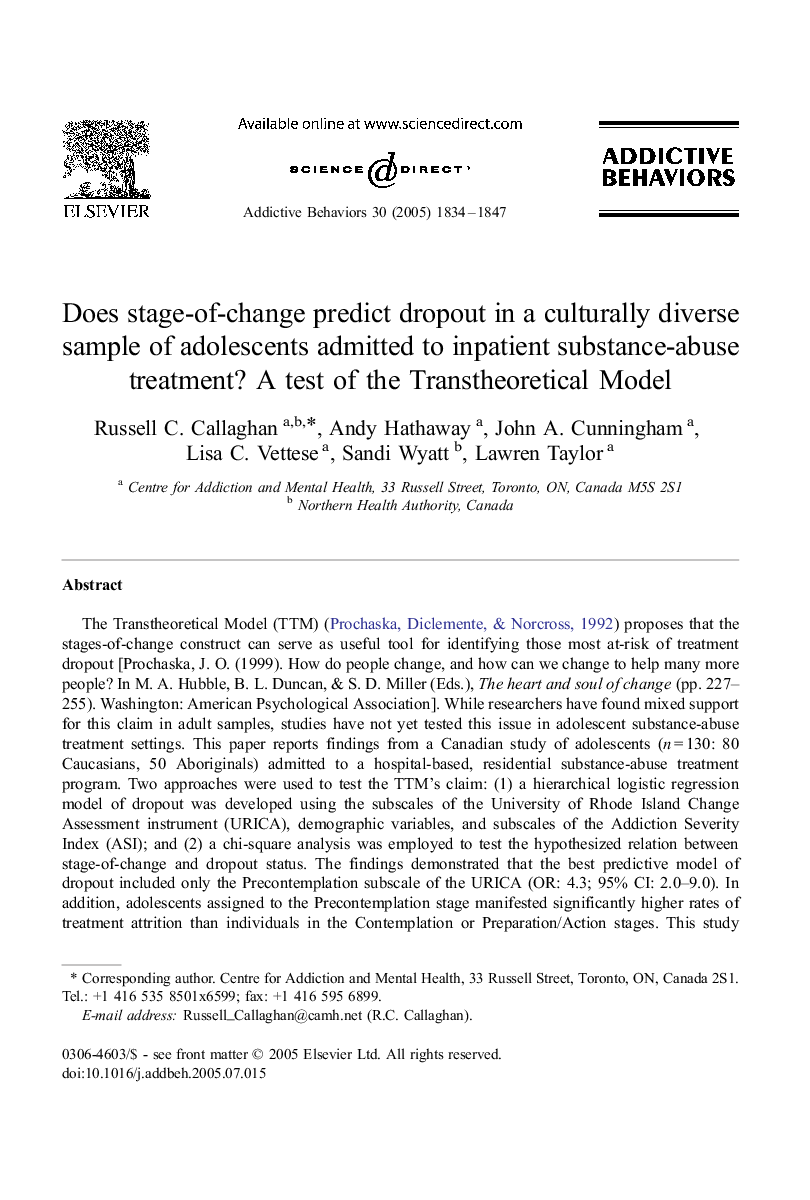ترجمه فارسی عنوان مقاله
انگیختگی ادراکی ایجاد حافظه های جدید اپیزودیک را بهبود می بخشد
عنوان انگلیسی
Does stage-of-change predict dropout in a culturally diverse sample of adolescents admitted to inpatient substance-abuse treatment? A test of the Transtheoretical Model
| کد مقاله | سال انتشار | تعداد صفحات مقاله انگلیسی |
|---|---|---|
| 36696 | 2005 | 14 صفحه PDF |
منبع

Publisher : Elsevier - Science Direct (الزویر - ساینس دایرکت)
Journal : Addictive Behaviors, Volume 30, Issue 9, October 2005, Pages 1834–1847

